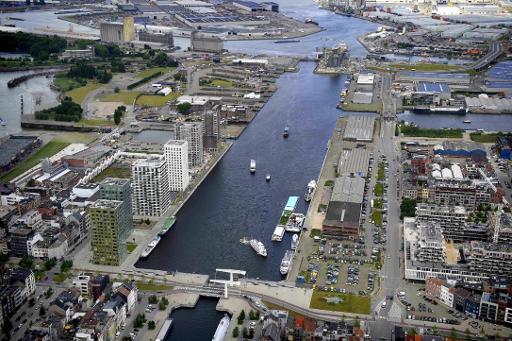The Port of Antwerp will use drones to ensure safety and reinforce controls, it announced on Friday.
The port covers more than 120 square kilometres and includes a critical industrial infrastructure. The use of drones (also known as unmanned aerial vehicles or UAVs) can enable the port authorities to manage, inspect and control a large area quickly and safely, said the port in a press release.
The Port of Antwerp has concluded an agreement with the European Maritime Safety Agency (EMSA) in collaboration with the Federal Public Mobility and Transport Service.
Drone pilots will work with Port Authority officials during their safety enhancement activities and provide them with an aerial view of the situation on the spot.
The images will also be remotely accessible and can therefore be quickly shared with the rescue services if necessary.
“We are doing everything we can to ensure a safe port and drones will become indispensable for this in the near future, including at our port," said port alderman Annick De Ridder.
The port assures that confidentiality is of "paramount importance" and that images will only be used for protection purposes and will not be retained.
Related News
- Orange introduces 5G applications to Port of Antwerp network
- Coronavirus: drones fly over Brussels food market to 'better identify' offenders
The drones will not only be deployed during regular checks, but also in the event of an incident, in order to get a quick overview of the situation.
The visual material of oil-related incidents will also be used by the University of Antwerp to generate algorithms to automatically detect incidents such as spills in the future.
"This collaboration with EMSA enables us to implement new technologies for our law enforcement activities, so that we can react more quickly to incidents and make a safer port available to our users," explained harbour master Paul Wauters, quoted in the press release.
“Innovation is crucial to guarantee the sustainable growth of our port in the long term,” said De Ridder. “This collaboration also confirms that the port is the ideal environment in which to test and further develop innovative technology,” she added.
Jason Spinks
The Brussels Times

